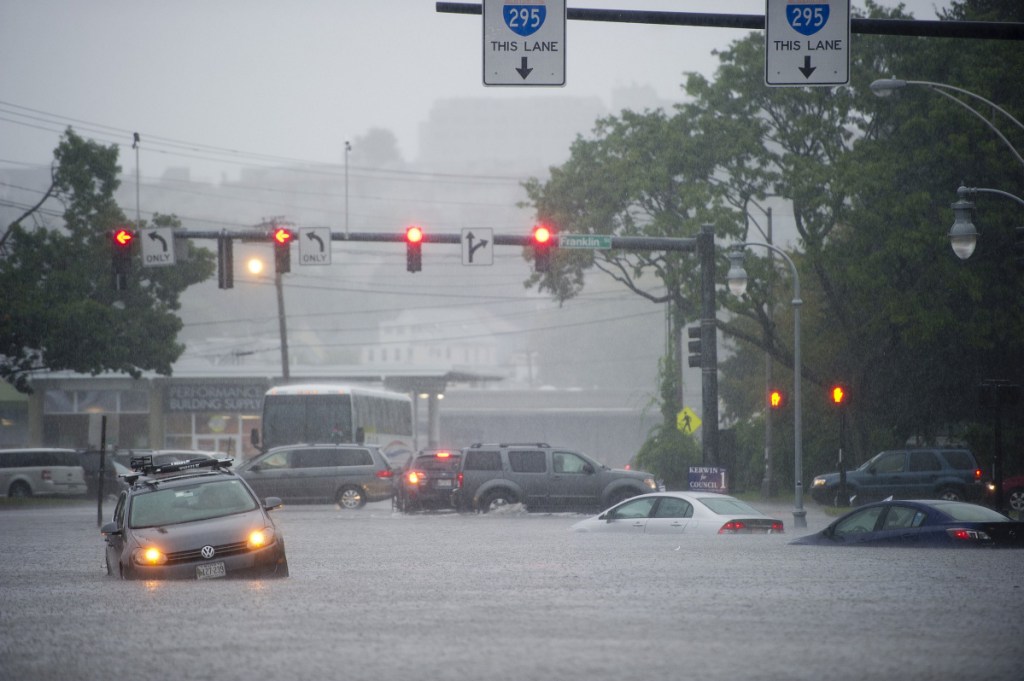The global challenge of climate change is usually framed as a debate between people who “believe” that human activity is causing the Earth to get warmer and those who don’t — or, at least, who don’t want to respond to the scientific consensus in any way that interferes with economic growth.
But on a local level, it’s a different question.
Maine’s climate challenge will be living with the consequences of the world’s slow response to the well-founded warnings that have been signaled for decades. Heavier rains, rising sea levels and an acidifying ocean are just a few of the factors already affecting Maine’s businesses and environment, and vector-borne diseases are threatening the public’s well-being. It will cost billions of dollars to replace outmoded infrastructure that could mitigate the catastrophic loss of property and economic disruption caused by predictable storms and floods. And the time to start making those investments is now.
The overarching message of the National Climate Assessment issued Friday by government scientists was consistent with other studies, especially the U.N. Intergovernmental Panel on Climate Change, which predicted severe climate impacts in the next dozen years, even when taking current reduction measures into account. What’s different about the report issued last week by the National Oceanographic and Atmospheric Agency and the National Centers for Environmental Information was its specificity about direct and indirect effects of a warming climate, putting a firm price tag on inaction.
According to the latest study, by the end of the century, climate change would cost the U.S. economy $500 billion a year through things like lost wages, crop failure and extreme weather damage. That would be a greater impact than the Great Recession of 2007-08.
One example of how this would play out in Maine is listed in the section of the report that focuses on the Northeastern states.
Throughout history, much of our industry and transportation systems relied on water, so there are a high number of contaminated sites, petroleum tanks and industrial waste management facilities in areas that will be subject to flooding.
“As a result, increases in flood frequency or severity could increase the spread of contaminants into soils and waterways, resulting in increased risks to the health of nearby ecosystems, animals and people — a set of phenomena well documented following Super Storm Sandy (in 2012),” the authors reported.
In other words, somebody is going to have to pay — preferably by preventing an environmental disaster rather than by waiting for one to strike and dealing with the consequences later. But there’s no cheap way around it.
Politicians in Augusta and Washington should be looking for ways to fund these projects now. Putting a price on carbon released in the environment, either through a tax or some similar instrument, is a logical way to raise money while encouraging reduction in fossil fuel use.
This global problem has come home, and we need to make sure we’re ready.
Copy the Story LinkSend questions/comments to the editors.



Success. Please wait for the page to reload. If the page does not reload within 5 seconds, please refresh the page.
Enter your email and password to access comments.
Hi, to comment on stories you must . This profile is in addition to your subscription and website login.
Already have a commenting profile? .
Invalid username/password.
Please check your email to confirm and complete your registration.
Only subscribers are eligible to post comments. Please subscribe or login first for digital access. Here’s why.
Use the form below to reset your password. When you've submitted your account email, we will send an email with a reset code.